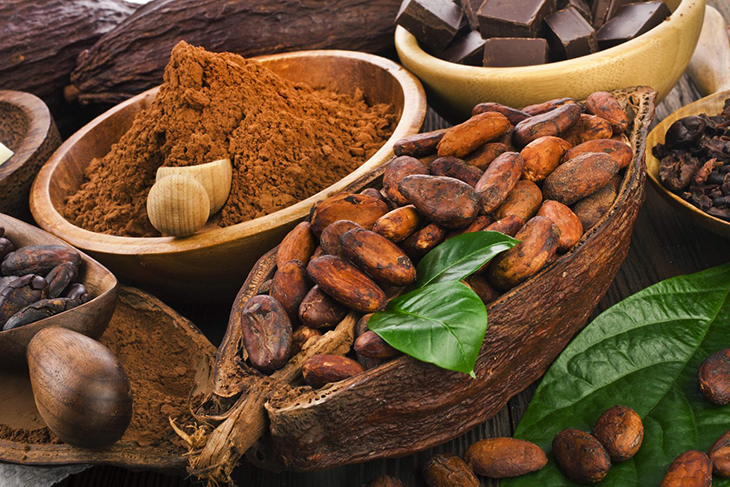
Cocoa powder is a byproduct of cocoa beans once the extraction of cocoa butter from the cocoa fruit is completed. In a recent study, some older adults exhibited enhanced performance on memory tests after incorporating antioxidant supplements derived from cocoa.
If your diet lacks foods rich in flavanols, a type of antioxidant present in select fruits, vegetables, tea, and cocoa, a daily flavanol supplement may have the potential to delay or possibly reverse age-related memory decline, according to a new research report.
In this study, over 3,500 older adults were randomly assigned to either receive a daily flavanol supplement or a placebo pill for a duration of three years. The supplement contained 500 milligrams (mg) of flavanols derived from cocoa, a dosage that falls within the recommended range of 400 to 600 mg suggested by the Academy of Nutrition and Dietetics for a balanced diet.
Upon entering the study and subsequently each year during the follow-up period, participants underwent a series of short-term memory assessments intended to gauge subtle alterations in skills such as word recall, which tend to deteriorate with advancing age. Additionally, they completed dietary surveys to evaluate the overall nutritional quality of their diets and the frequency of consumption of flavanol-rich foods.
People With Low-Antioxidant Diets Experienced the Biggest Memory Benefit
In the Proceedings of the National Academy of Sciences (PNAS), researchers reported on May 30 that the impact of flavanols on memory was generally modest. Moreover, the improvements observed after one year in individuals taking supplements were too slight to definitively rule out the possibility that they could be attributed to chance. It’s worth noting that most of the study’s participants already maintained fairly healthy diets and regularly consumed foods rich in flavanols.
However, a noteworthy finding emerged among those participants with the lowest-quality diets and the least consumption of flavanol-rich foods. In this specific subgroup, the introduction of flavanol supplements had a substantial impact. After one year of taking flavanol supplements, their memory test scores exhibited a remarkable 16 percent increase compared to their initial scores at the outset of the study.
“Memory was worse in those participants who had lower than normal flavanols, and memory was restored when their flavanols were restored to normal levels,” said Scott A. Small, MD, a neurology professor and the director of the Alzheimer’s Disease Research Center at Columbia University in New York City and a co-author of the study.
Antioxidant Deficiency May Be Tied to Age-Related Memory Loss
What this suggested that flavanol deficiency might be one driver of age-related cognitive decline, Dr. Small explained. “Anyone with a deficiency in flavanols might benefit from consuming more flavanols,” he said.
One limitation of the study, as pointed out by the researchers, is that the majority of participants maintained a relatively healthy diet. It is conceivable that the influence of heightened flavanol intake on memory could yield more striking results if the research were centered exclusively on individuals with the lowest-quality diets, characterized by a dearth of flavanol-rich sources like whole fruits and vegetables.
Furthermore, it would be unwise to commence a daily regimen of consuming 500 mg of chocolate with the expectation of enhancing memory or staving off age-related cognitive decline. This caution arises from the fact that the supplements utilized in the study were derived from concentrated cocoa extract and did not contain the sugars and fats commonly present in most chocolate bars.
It’s worth noting that the study had received partial funding from Mars, a manufacturer of chocolate products.
Flavanols Found in a Variety of Fruits and Vegetables
Small suggested that flavanols from various healthy sources might potentially replicate at least some of the effects observed in the study with cocoa flavanol supplements. “There are many fruits and vegetables that contain flavanols, and that would be our recommendation,” Small said.
In a broader context, the research indicates that a diet abundant in flavanols and various phytonutrients, which are plant-based compounds possessing antioxidant, anti-inflammatory, and health-protective attributes, can contribute to the overall well-being of both the body and the brain. Samantha Heller, RD, a senior clinical nutritionist at New York University Health in New York City, who was not part of the recent study, underscored this point.
“Including foods such as colorful vegetables and fruits, legumes, whole grains, nuts, and seeds in one’s diet has been shown to decrease the risk of many chronic diseases and cognitive decline,” Heller said.
“While cocoa contains many phytochemicals, consuming a variety of plant foods helps ensure that we are getting the wide array of these nutrients.”



